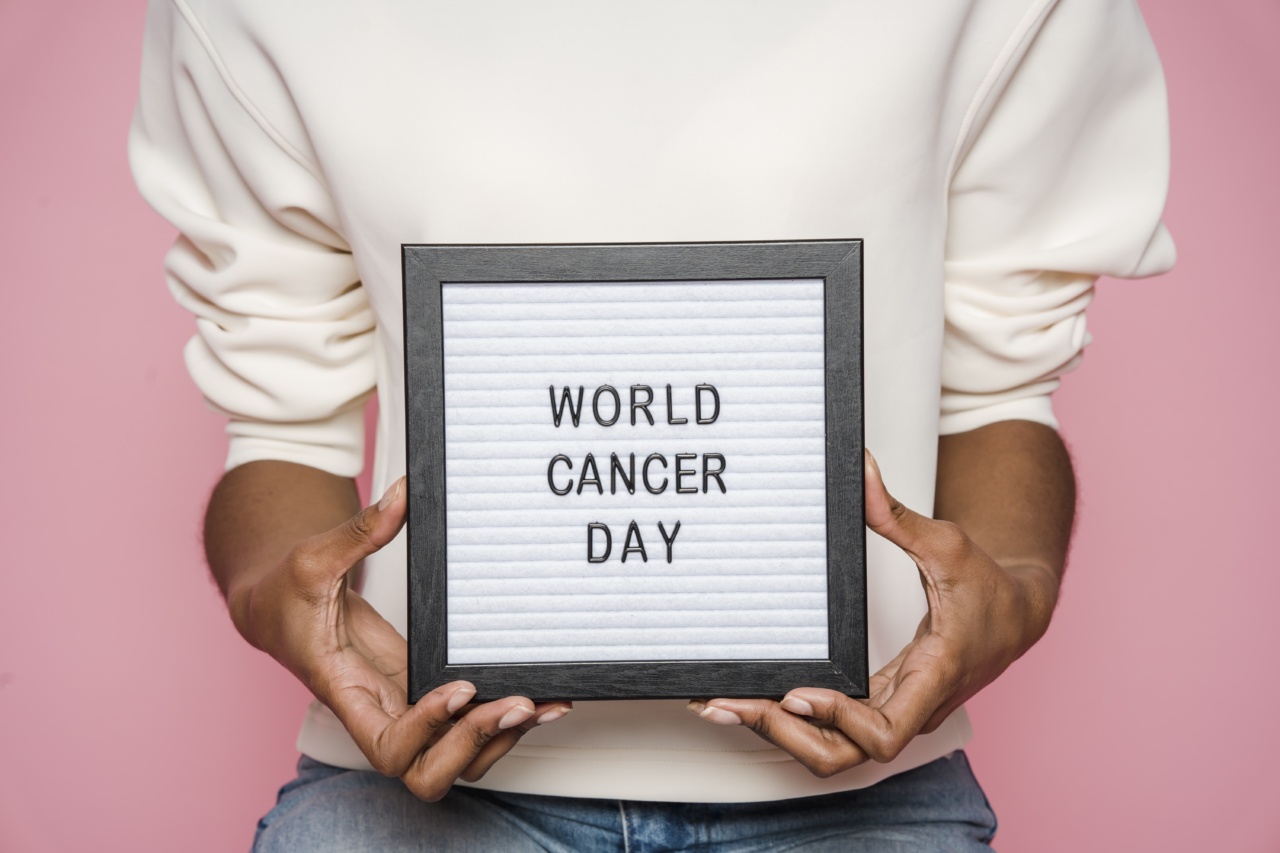World Cancer Day is observed on February 4th every year to raise awareness and educate people about cancer. It aims to encourage individuals, communities, and governments to take action against this deadly disease.
Cancer is a global health burden that affects millions of people worldwide, and it is imperative to focus on prevention and early detection to reduce its impact.
The Global Cancer Epidemic
Cancer is a leading cause of death worldwide, accounting for approximately 10 million deaths annually. The World Health Organization predicts that cancer cases will continue to rise by about 70% over the next two decades.
With such staggering statistics, it is crucial to address the global cancer epidemic collectively.
The Role of Society
Societal factors play a significant role in cancer prevention and control. Empowering communities with knowledge, promoting healthy lifestyles, and eliminating social inequality can contribute to reducing the cancer burden.
1. Promoting Awareness and Education
Educating the public about cancer risk factors, early detection, and available treatments is vital. Many individuals lack awareness and knowledge about the disease, leading to delayed diagnoses and poor outcomes.
Raising awareness through awareness campaigns, public health initiatives, and educational programs can help tackle the ignorance surrounding cancer.
2. Encouraging Healthy Behaviors
Adopting a healthy lifestyle significantly reduces the risk of developing cancer. Society can encourage individuals to make positive changes by promoting physical activity, tobacco cessation, healthy diet choices, and regular health screenings.
By implementing policies that make healthier options accessible and affordable, society can curtail the incidence of cancer.
3. Reducing Environmental Exposures
Exposure to certain chemicals, pollutants, and radiation can increase the risk of cancer.
Society should work towards minimizing these exposures by advocating for stricter regulations, promoting eco-friendly practices, and supporting research on environmental carcinogens.
4. Ensuring Accessible Healthcare
Equitable access to quality healthcare is crucial in the fight against cancer. Society must work together to eliminate barriers to healthcare, including financial constraints, lack of awareness, and inadequate healthcare infrastructure.
Collaboration between governments, healthcare providers, and non-profit organizations can ensure that cancer prevention, screening, and treatment are accessible to all.
The Role of the State
Governments play a vital role in formulating policies, implementing regulations, and allocating resources to combat cancer effectively.
1. Implementing Cancer Prevention Strategies
States should develop comprehensive cancer prevention strategies that prioritize awareness, education, and early detection.
These strategies should focus on high-risk populations, provide guidelines for healthcare professionals, and emphasize the importance of healthy lifestyles.
2. Investing in Research
Government funding for cancer research is essential in understanding the disease better, developing innovative treatments, and finding a cure.
Increased investment in cancer research can lead to breakthroughs in prevention and treatment options, ultimately reducing the global cancer burden.
3. Strengthening Healthcare Systems
Strong healthcare systems are critical to cancer prevention and control. The state should invest in healthcare infrastructure, train healthcare professionals, and ensure that quality cancer care is accessible to all.
Policy initiatives can be implemented to improve early detection programs, provide affordable medications, and support palliative care services.
4. Legislate for Change
Governments have the power to enact legislation and regulations that promote a cancer-free society.
This includes tobacco control measures, regulations on environmental pollutants, and promoting healthier food options through labeling and taxation policies.
Conclusion
World Cancer Day serves as a reminder that cancer can be prevented, detected early, and effectively treated.
By working together, society and the state can create a culture of prevention, increase awareness, and implement measures that reduce the burden of cancer. It is essential to prioritize cancer prevention, invest in research, and ensure equitable access to healthcare for all individuals. Only through collective efforts can we combat the global cancer epidemic and save millions of lives.






























